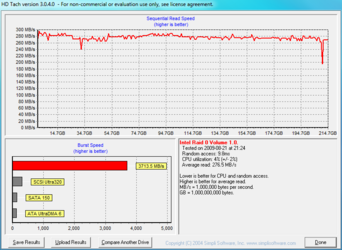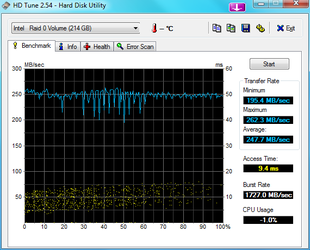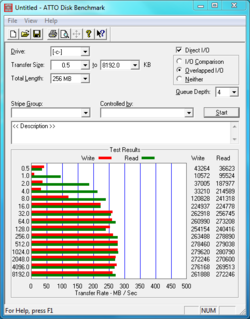- Joined
- Oct 27, 2005
- Location
- Lake Village, IN 46349
So I grabbed a couple of these to replace the single, VERY slow 400GB drive I was using previously as my system drive. I was too impatient to install an OS and run benchies on a single drive, full drive, etc. But I can at least give people an idea of how these run in my setup.
Q9550 - Lapped - 4012Mhz
Gigabyte GA-P45-UD3P
2x 2GB Gskill DDR2-1000
2 x 500GB Samsung F3 - RAID 0
I have a 200GB RAID 0 array for the system and then the rest RAIDed for extra storage. I know this doesn't really give you guys a perfect idea of how a single drive performs, but it's all I have



I'm quite happy with how fast the system feels. I can finally max out my 1TB on transfers. I also have my old Seagate .11 1.5TB drive in an eSATA enclosure and it topped out at over 100MB/s, which is nice (I'm used to 30-40 MAX)
Q9550 - Lapped - 4012Mhz
Gigabyte GA-P45-UD3P
2x 2GB Gskill DDR2-1000
2 x 500GB Samsung F3 - RAID 0
I have a 200GB RAID 0 array for the system and then the rest RAIDed for extra storage. I know this doesn't really give you guys a perfect idea of how a single drive performs, but it's all I have



I'm quite happy with how fast the system feels. I can finally max out my 1TB on transfers. I also have my old Seagate .11 1.5TB drive in an eSATA enclosure and it topped out at over 100MB/s, which is nice (I'm used to 30-40 MAX)
